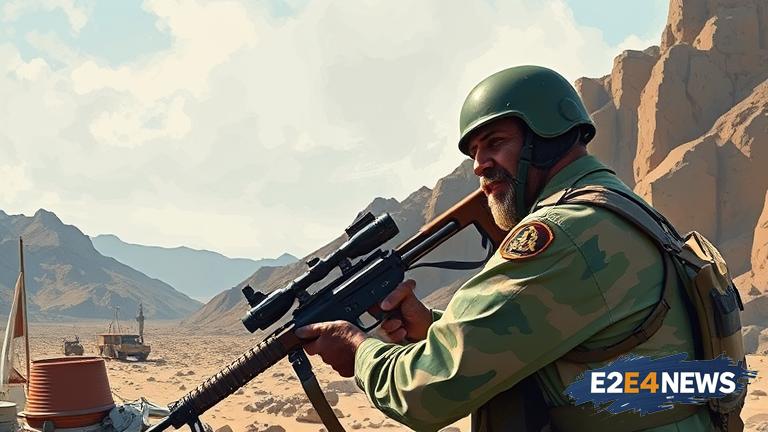The Balochistan Liberation Army (BLA) has intensified its guerrilla warfare campaign across Balochistan, resulting in the deaths of 23 people, including a senior Pakistani officer. The BLA, a separatist group fighting for independence, has been waging a low-intensity insurgency against the Pakistani government for decades. The recent surge in violence has raised concerns about the stability of the region and the ability of the Pakistani military to contain the insurgency. The BLA has been using tactics such as ambushes, bombings, and targeted killings to attack Pakistani security forces and government officials. The group has also been targeting infrastructure, including roads, bridges, and communication towers, in an effort to disrupt the economy and create chaos. The Pakistani government has responded to the violence by launching military operations against the BLA, but the group remains a potent force in the region. The BLA’s ability to operate with impunity has raised questions about the effectiveness of the Pakistani military’s counter-insurgency strategy. The group’s leader, Aslam Baloch, has vowed to continue the fight for independence, despite the risks and challenges. The BLA’s insurgency has also had a significant impact on the local population, with many civilians caught in the crossfire. The Pakistani government has been accused of human rights abuses in its efforts to quell the insurgency, including enforced disappearances, torture, and extrajudicial killings. The international community has called for restraint and dialogue to resolve the conflict peacefully. The BLA’s guerrilla warfare campaign has also raised concerns about the potential for the conflict to spread to other parts of Pakistan. The group has been linked to other separatist movements in the region, including the Pakistani Taliban. The Pakistani government has accused India and other countries of supporting the BLA, which has denied any external support. The conflict in Balochistan has significant implications for regional stability and global security. The region is rich in natural resources, including gas, oil, and minerals, and is a key transit route for trade between Pakistan and other countries. The BLA’s insurgency has also disrupted the development of the China-Pakistan Economic Corridor (CPEC), a multi-billion dollar infrastructure project aimed at promoting economic growth and cooperation between China and Pakistan. The Pakistani government has vowed to complete the project, despite the challenges posed by the insurgency. The conflict in Balochistan is a complex and multifaceted issue, with deep historical and cultural roots. The region has a distinct cultural and linguistic identity, and many Baloch people feel that they have been marginalized and excluded from power and decision-making. The BLA’s insurgency is a symptom of deeper grievances and frustrations, and a lasting solution will require a comprehensive and inclusive approach that addresses the root causes of the conflict. The international community has a critical role to play in promoting peace and stability in the region, and in supporting efforts to resolve the conflict through dialogue and negotiation.
